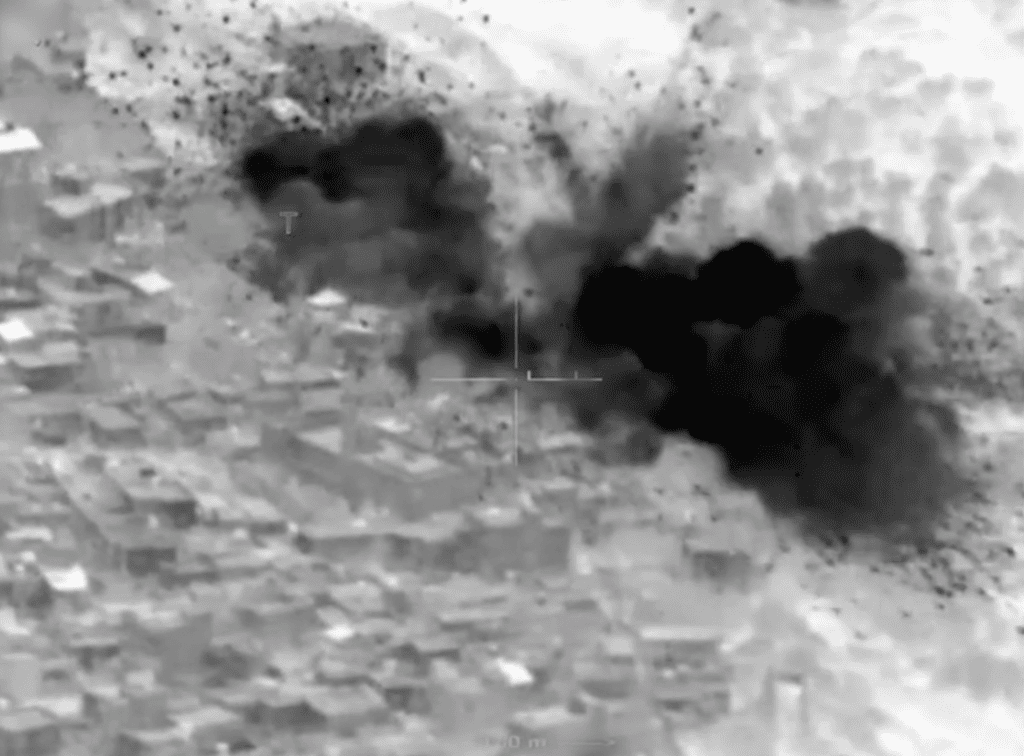
On April 3, the Israel Defense Forces said they were increasing manpower for their air defenses by calling up reservists. Israel operates a complex, integrated and multi-layered air defense array that is used to intercept everything from mortars and drones to ballistic missiles. Since October 7, the air defenses were thrown into action, intercepting thousands of rockets fired from Gaza, in addition to ballistic missiles, cruise missiles and drones launched from Yemen, as well as rockets and drones launched by Hezbollah
The decision to call up reservists happens as Iran has vowed to respond to the killing of members of its Islamic Revolutionary Guard Corp in an airstrike on the Iranian consulate in Damascus on April 1. The airstrike hit the building adjacent to the consulate used by the IRGC. Iran blamed Israel and mobilized condemnations from some regional countries.
On April 1, Iran’s president Ibrahim Raisi called Syrian regime leader Bashar al-Assad to condemn Israel. “Israel’s assassination of Iranian military advisors in Syria shows desperation and helplessness of the Zionist regime,” Iran’s president stated, according to Iran’s pro-government Fars News. Iran vowed to “punish” Israel. “There is no doubt that Zionists and their supporters are responsible,” Iran said. Iran’s Ayatollah Khamenei doubled down on the threats on April 3, claiming that Iran would respond to the airstrike. Hezbollah leader Hassan Nasrallah also put out a statement, asserting that the war in Gaza was leading to Israel’s isolation. Israel has not taken responsibility for the airstrike. Nasrallah also said that the Hamas attack on Israel on October 7 has led to Israel’s decline. This is the Iranian narrative, which portrays Gaza as a quagmire for Israel. Over the last several days there has been unrest in the West Bank and protests in Jordan that Iran’s regime appears to be exploiting.
On the afternoon of April 3, Hezbollah carried out numerous rocket attacks on northern Israel. They began at 2:31 in the afternoon, targeting communities around Mount Dov in the northeastern Galilee, a border area that Hezbollah claims is part of Lebanon. It adjoins Mount Hermon, which rises thousands of meters above sea level towering over the Galilee. Hezbollah has often targeted Mount Dov since October 8, when it began its attacks in the wake of the Hamas attack.
After the attacks near Mount Dov and near the city of Kiryat Shmona, Hezbollah moved its attacks closer to the Mediterranean. Sirens sounded in a dozen communities around 3:56 in the afternoon. The IDF said that the “Hezbollah terrorist organization launched rockets at the Har Dov area in northern Israel from a military post in the area of Kfar Hamaam. Within a few minutes, IAF fighter jets and aircraft struck Hezbollah terror infrastructure and military posts, including the post from which the rockets were launched and the operatives who fired the rockets.” The IDF also said it used artillery to strike at Hezbollah positions in Ayta as Shab, an area frequently targeted by the IDF. On Tuesday, the IDF said it “struck Hezbollah military structures and terrorist infrastructure in the area of Blida and Aynata.” In addition on April 3, the IDF said it had determined the March 30 explosion near the Christian town of Rmeish in Lebanon which wounded several UN observers was carried out Hezbollah.
Israel appeared to prepare for an Iranian response on the evening of April 3, which is also towards the end of Ramadan and the eve of Iran’s “Quds Day” on which it demonstrates for Jerusalem and the Palestinian cause. Therefore, a number of issues are converging at the same time.







